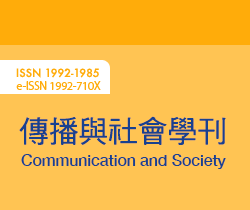 |
| January 2014 |
 |
27 |
|
| 專輯論文Special Issue Articles |
| 歷史觀看的政治:中國大陸閱聽人對當代 中國電視歷史劇的解讀 |
| The Politics of Watching History: Chinese Audiences |
|
|
|
 |
 (3897)
(3897)
|
| 作者 |
郭大為 |
| Author |
George Dawei GUO |
| 關鍵詞 |
當代中國電視歷史劇、中國大陸閱聽人、閱聽人研究、文化 勝任能力、經典 |
| Keywords |
contemporary Chinese television historical drama, Mainland Chinese audiences, audience research, cultural competences, classic-ness |
| 摘要 |
本文旨在對當代中國大陸歷史題材電視劇對於中國大陸閱聽人的「意義」和「價值」作社會文化分析。作者於2007 年10 月初到2008 年3月底在北京和長沙開展了10組焦點小組訪問研究。作者通過對於訪問資料的分析發現,受訪對象通過「真實與虛構」以及「經典」兩個概念框架介入當代中國的歷史劇文本。作者指出,雖然當代中國電視歷史劇的文本建構和傳播過程中充滿了國家意誌的干預和監控,閱聽人則因着自己同國家意誌的親疏遠近來處理同這些「歷史戲劇」之間的關係。 |
| Abstract |
Since the mid-1990s, a wave of dramatic serials featuring the legendary figures of China's bygone dynasties has emerged on Chinese primetime television. The commercialization of mass media and the rise of media consumerism in China since the early 1990s have fostered the emergence of these historical dramas. Set during the dynasty era, these television serials have been at the forefront in articulating political and legal principles based on the Confucian-influenced traditional Chinese culture. Although media scholars have interpreted the popularity of these historical dramas as a revival of Confucianism, virtually no empirical research has been done to explore how Chinese audiences relate their viewing experiences to the revival of Confucianism according to their own social and cultural conditions. This article presents a qualitative audience study of how the historical dramas are understood and socially and culturally valued in contemporary China, considering personal, social, historical, and cultural issues that relate to viewers' engagement with this television genre. Between late September 2007 and early April 2008, the author carried out his fieldwork audience research in two urban Chinese settings: Beijing and Changsha. Ten focus groups were conducted involving more than 50 respondents from young adult and middle-aged audience groups. The author identifies two text-based interpretive frameworks— fact/fiction and “classic-ness”—that were adopted by the respondents across all the focus groups in their understanding and evaluation of the historical programs. In conclusion, the author argues that the relationship between the historical drama genre and its audiences represents imaginative conflicts and ideological clashes in the treatment of the state as a totalitarian entity in China’s television culture sphere.
本文引用格式
郭大為(2014)。〈歷史觀看的政治:中國大陸閱聽人對當代中國電視歷史劇的解讀〉。《傳播與社會學刊》,第27 期,頁149–177。
Citation of this article:
Guo, G. D. (2014). The politics of watching history: Chinese audiences' responses to historical drama on contemporary Chinese television. Communication & Society, 27, 149–177.
|
|
|
 |
| No.74 2025 October |
 |
| No.73 2025 July |
 |
| No.72 2025 April |
 |
| No.71 2025 January |
 |
| No.70 2024 October |
|
